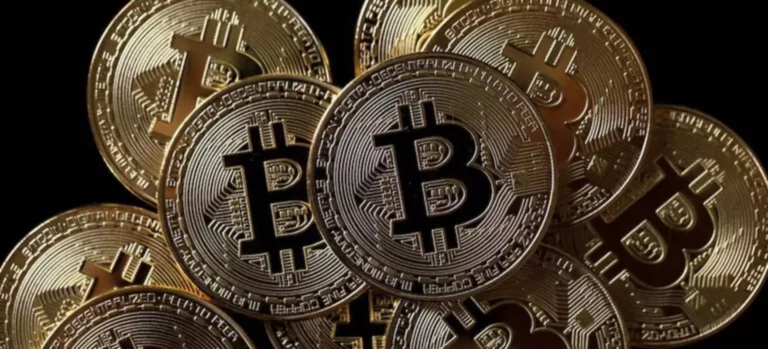The prop trading world is dynamic and difficult, however for those who are prepared, it provides a landscape wealthy with opportunities for progress and success. Another essential facet is establishing a dependable payments ecosystem, especially for unbiased merchants and smaller companies. This involves organising safe and efficient fee processing methods, which are important for dealing with transactions and managing funds. Key to success on this subject is knowing market circumstances and trading options. This consists of preserving abreast of worldwide economic tendencies, being adept at technical evaluation, and staying knowledgeable about regulatory adjustments. Modern buying and selling platforms and analytical tools can present an edge on this competitive panorama.

It discusses the extent of this exercise, the risks it poses to the protection and soundness of corporations, the instruments the PRA has to mitigate these risks, and the experience of different countries in proscribing proprietary buying and selling inside the banking sector. It additionally addresses whether the ring-fencing regime, along with the other tools available to the PRA, are adequate to mitigate the risks proprietary buying and selling poses to monetary stability and the protection and soundness of companies. The Volcker Rule is a federal regulation that usually prohibits banks from conducting certain funding actions with their own accounts and limits their dealings with hedge funds and private fairness funds, also called coated funds.
How A Lot Do Prop Traders Make?
These links are additionally unlimited, that means that you could work with as many traders as you would like. Although generally considered as dangerous, proprietary buying and selling is often one of the most worthwhile operations of a industrial or funding bank. During the financial crisis of 2008, prop traders and hedge funds had been among the firms that have been scrutinized for causing the crisis.

Proprietary trading desks are typically “roped off” from client-focused trading desks, serving to them to stay autonomous and guaranteeing that the monetary establishment is performing within the curiosity of its shoppers. Essentially, it prohibits banks from utilizing their own accounts (customer funds) for short-term proprietary trading of securities, derivatives, and commodity futures, as properly as options on any of these instruments. Volcker finally hoped to reestablish the divide between commercial banking and funding banking—a division that once existed but was legally dissolved by a partial repeal of the Glass-Steagall Act in 1999.
“Proprietary trading firms present a vital service to capital markets providing liquidity and reducing execution costs and spreads for finish customers. The Volcker Rule prohibits banks and establishments that personal a financial institution from participating in proprietary buying and selling and even investing in or proudly owning a hedge fund or personal fairness fund. From a market-making point of view, banks focus on preserving prospects joyful, and compensation is based on commissions. However, from a proprietary trading point of view, the shopper is irrelevant, and the banks benefit from the full income. Volker argued that commercial banks engaged in high-speculation investments affected the soundness of the general financial system.
My Forex Funds
In one of the stories, launched in June 2017, the Treasury stated it recommends important adjustments to the Volcker Rule whereas including that it doesn’t assist its repeal and “supports in principle” the rule’s limitations on proprietary trading. The report notably recommends exempting from the Volcker Rule banks with less than $10 billion in property. Banks and different monetary institutions interact in this type of commerce with the goal of making excess income. Such firms typically have an edge over the common investor by method of the market info they’ve. Another advantage comes from having subtle modeling and buying and selling software program. Proprietary Trading (Prop Trading) happens when a bank or agency trades stocks, derivatives, bonds, commodities, or different financial instruments in its personal account, using its personal money as a substitute of utilizing clients’ cash.

We have comprehensively defined what proprietary buying and selling is, what benefits it supplies, and the way prop companies work. Now is the best time to introduce the top 5 prop buying and selling companies in 2023, primarily based on market share, and person and professional reviews. Therefore, solely https://www.xcritical.in/ investors that meet these capital requirements are allowed to participate in riskier investments. So, Basel III also impacts the smaller proprietary trading corporations, as they’d not have the flexibility to interact in any arbitrary investing activity.
High-frequency Buying And Selling
Once the ultimate rule is printed within the federal register – taking impact 60 days from posting – companies could have a yr to conform. The rule has divided the market, with conflicting opinions on the benefits of such a transfer. However, if a firm buys securities in bulk they usually turn into worthless, it will be compelled to absorb the losses internally. The agency only benefits if the price of their safety inventory rises or others buy it at the next price. To follow the pattern, you have to first identify the potential course of the market or you can hop on when the market is already trending. Trend followers goal to seize the biggest moves in the market, as they continue to be of their positions for an in depth time period until they perceive that the market is reversing.

Interestingly, this second earnings stream is claimed to be significantly larger than the primary one, as nearly all of traders fail challenges and verify out over and over again, paying the fee each time. Independent traders enjoy higher autonomy however face the problem of navigating the markets with out the assist and assets of an establishment like a bank holding firm or brokerage agency. Building a profitable unbiased buying and selling profession requires a deep understanding of markets, disciplined danger management, and adherence to authorized regulations. The rule aims to limit banks from ensuring speculative investments that do not immediately profit their depositors. The law was proposed after the worldwide financial crisis when government regulators determined that enormous banks took too many speculative dangers.
customer service and secondary revenue sources. I am an avid traveler, convention speaker and love to attend any event that enables me to learn about know-how. I am fascinated by anything related to
Future Of The Volcker Rule
For occasion, you can make the most of individual stocks or inventory indices and exchange-traded funds (ETFs) for statistical arbitrage. This technique is extremely reliant on statistical models and instrument correlations. As the financial markets evolve, so too do the rules governing them, making it crucial for prop traders to remain knowledgeable and adapt to the latest authorized requirements.
Financial establishments have interaction in proprietary buying and selling as a means of benefitting from perceived aggressive advantages and maximizing their profits. Since proprietary trading uses the firm’s own money quite than funds belonging to its shoppers, prop merchants can take on larger levels of threat without having to reply to shoppers. Proprietary buying and selling refers to a monetary firm or commercial financial institution that invests for direct market acquire somewhat than incomes commission dollars by buying and selling on behalf of shoppers.

Proprietary buying and selling also injects additional funds into the market, growing liquidity and market efficiency. Yet, similar to any activity in the financial markets, prop trading can also be topic to various risk elements. So, traders and firms should goal to mitigate these threats by utilizing efficient threat administration strategies.
What’s Proprietary Trading?
FTMO is extensively thought of the corporate that popularized prop firms in the retail trading industry. Governments and other regulatory entities are at all times extremely delicate about the financial markets, and rightfully so. The 2008 credit crisis was a living proof that how a malfunction within the monetary system can cripple a whole economy.
- The structured surroundings offers a comprehensive understanding of market dynamics and buying and selling methods, along with exposure to regulatory compliance and threat management practices.
- A firm can buy the securities with its own resources and then sell to interested buyers at a future date.
- Traders also needs to pay for challenges, and that is the prop firms’ second earnings stream.
- For the largest market-making companies this threshold might be reached during times of volatility, particularly if world operations are taken under consideration.
For larger companies, the risk is that they arrive into scope as Class 1 firms if their property exceed a sure threshold. In some instances, this may mean that they are required to register as credit score institutions and topic to necessities equal to and designed for banks, the report finds. In order for proprietary buying and selling to be efficient and likewise maintain the institution’s shoppers in thoughts, the proprietary buying and selling desk is normally “roped off” from different trading desks. This desk is responsible for a portion of the financial institution’s revenues, unrelated to client work whereas acting autonomously.
Their enterprise model depends heavily on revenue from traders purchasing analysis accounts or challenges. The profits shared with profitable merchants may come extra from these challenge purchases rather than precise buying and selling earnings. This mannequin of paying out income to some using funds from new individuals resembles a Ponzi scheme. The rising accessibility of trading platforms and the democratization of monetary markets recommend that prop buying and selling will proceed to attract a diverse vary of participants.
